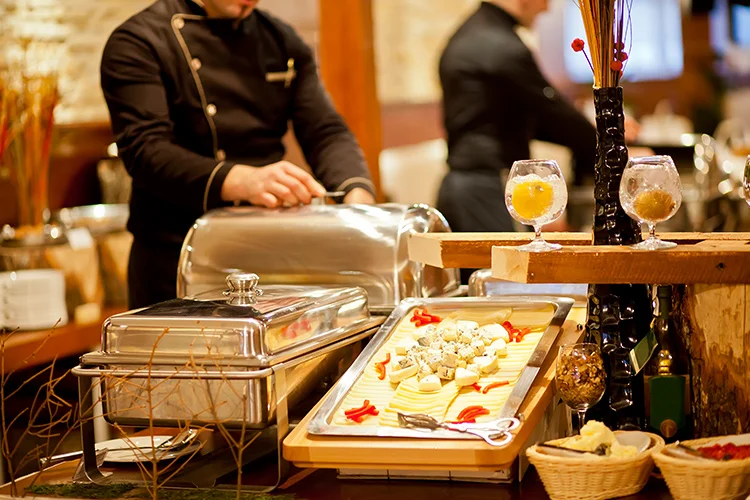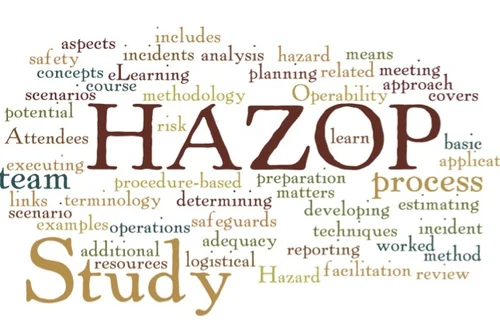The Role of Food & Beverage in Hotel Operations

Food and beverage play a critical role in hotel operations by enhancing the guest experience and contributing significantly to revenue. Hotels provide various dining options to meet the preferences of guests, from casual dining to fine dining. A well-managed food and beverage (F&B) department ensures customer satisfaction, increases brand reputation, and boosts overall profitability.
Enhances Guest Experience
One of the primary roles of the food and beverage department is to create memorable experiences for guests. Guests expect high-quality food, excellent service, and a pleasant atmosphere. When hotels provide these services efficiently, it leaves a lasting impression. Whether it’s breakfast, lunch, dinner, or room service, maintaining quality is essential. Many guests choose hotels based on the variety and quality of dining options available, which means the F&B department directly affects guest satisfaction.
Generates Significant Revenue
The food and beverage department is a major source of income for hotels. In addition to room bookings, revenue from dining services contributes heavily to the overall profitability. Hotels offer various services such as buffets, banquets, and catering for events, which attract both guests and locals. A well-structured F&B department can generate consistent income, helping the hotel remain financially stable even during off-peak seasons. Many students from the Best Hotel Management College in Kota learn these techniques to enhance hotel revenue.
Supports Event Management
Hotels often host events such as weddings, conferences, and parties. The food and beverage department plays an essential role in ensuring the success of these events. From planning the menu to serving guests, this department coordinates every detail to create a seamless experience. Guests often remember events based on the quality of the food and service, which makes this aspect crucial for the hotel’s reputation.
Promotes Brand Reputation
The quality of food and beverage services can significantly impact the reputation of a hotel. Guests who enjoy their dining experience are more likely to leave positive reviews and recommend the hotel to others. In contrast, poor service or low-quality food can lead to negative feedback, affecting the hotel’s image. Many hospitality professionals trained at AHA Kota understand how to maintain high standards to protect and enhance the hotel’s brand.
Adapts to Changing Trends
The food and beverage industry is constantly evolving, with changing guest preferences and emerging trends. Hotels need to stay updated with the latest trends, such as offering vegan or gluten-free options, focusing on sustainable sourcing, and incorporating local cuisine into their menus. By adapting to these changes, hotels can attract a wider range of guests and increase their competitiveness. Graduates from the Best Hotel Management Courses in Kota are equipped to understand and implement these trends effectively.
Ensures Health and Safety Compliance
Maintaining health and safety standards is a key responsibility of the food and beverage department. Hotels must adhere to hygiene protocols, food safety regulations, and quality control measures. Proper training ensures that staff handle food safely and provide guests with a safe dining environment. Compliance with these regulations not only protects guests but also protects the hotel from legal issues.
Improves Guest Loyalty
A positive dining experience often leads to guest loyalty and repeat visits. Guests who enjoy their food and the overall service are more likely to return and recommend the hotel to others. Offering a variety of cuisines, maintaining high-quality service, and ensuring timely delivery can significantly impact guest retention. Hotels can also introduce loyalty programs and exclusive dining offers to encourage repeat visits.
Contributes to Cross-Selling and Upselling
The food and beverage department offers numerous opportunities for cross-selling and upselling. For example, suggesting premium drinks, specialty dishes, or dessert options can increase the average spend per guest. Room service promotions, festive menus, and event catering packages are also effective ways to boost revenue. Well-trained staff know how to identify guest preferences and make personalized recommendations that enhance the guest experience while increasing sales.
Encourages Innovation and Creativity
The food and beverage department is an ideal space for innovation and creativity. From designing unique menus to creating signature dishes, hotels can differentiate themselves by offering exclusive dining experiences. This creativity not only attracts guests but also helps hotels stay ahead of competitors. Hotel management professionals trained at AHA Kota are encouraged to think creatively and offer innovative solutions to meet guest expectations.
Balances Cost and Quality
Managing costs while maintaining high-quality standards is one of the biggest challenges in the food and beverage department. Hotels need to monitor food wastage, control portion sizes, and negotiate with suppliers to ensure a balance between cost efficiency and quality. Effective cost management can improve profitability without compromising guest satisfaction.
Supports Sustainability Initiatives
Sustainability has become an important consideration in the hospitality industry. The food and beverage department can contribute by reducing food waste, sourcing ingredients locally, and minimizing plastic use. Implementing sustainable practices not only benefits the environment but also appeals to environmentally conscious guests. Many hospitality graduates from the Best Hotel Management College in Kota are trained to incorporate sustainable practices into their operations.
Provides Training and Skill Development
The food and beverage department also plays a vital role in staff training and development. Employees need to be trained in customer service, hygiene standards, and menu knowledge to deliver high-quality service. Regular training sessions ensure that staff are prepared to handle different situations and maintain a high level of professionalism.
Conclusion
The food and beverage department is an integral part of hotel operations that directly influences guest satisfaction, revenue generation, and brand reputation. By maintaining high standards, adapting to trends, and focusing on innovation, hotels can create memorable experiences for their guests. Professionals trained at AHA Kota and other reputed institutions bring expertise that enhances the quality of hotel services. The success of a hotel often depends on the efficiency and effectiveness of its food and beverage services, making this department an essential component of hospitality management.







